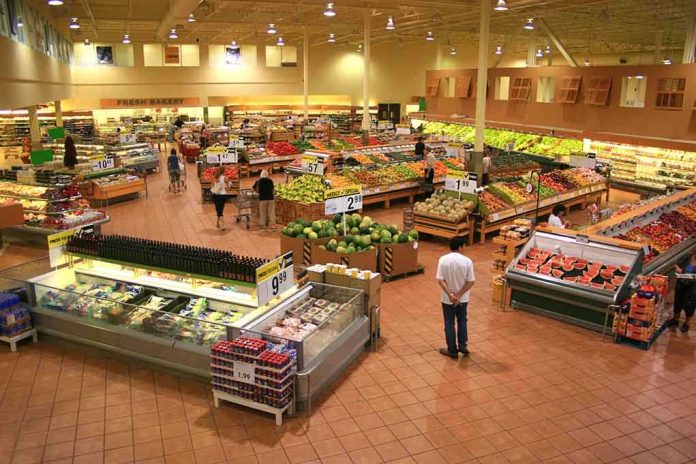
Seattle’s grocery store closures reveal a complex web of corporate decisions and city policy responses, not a radical socialist agenda.
Story Snapshot
- No socialist mayor in Seattle mandating grocery stores to stay open.
- Store closures driven by corporate decisions and economic factors.
- City officials are focusing on legislative measures to address food access.
- Community outcry centers on food insecurity and job losses.
Understanding the Misleading Narrative
The claim that Seattle’s supposed socialist mayor is forcing private grocery stores to remain open lacks any factual basis. The reality involves a series of grocery store closures announced by Kroger in 2025, driven by regulatory costs, low sales, and rising theft. These closures sparked concerns about the emergence of food deserts in certain neighborhoods, but the city’s response has been legislative rather than coercive, focusing on food access and community support.
How did #Seattle go insane❓
Seattle’s New Socialist Mayor Goes Full Communist, Says She Won’t Allow Private Grocery Stores To Close https://t.co/q1Vc6hZPb3
— Miz GiGi (@GigiStratton) November 13, 2025
Mayor Bruce Harrell, a centrist Democrat, and the Seattle City Council have taken steps to address the impact of these closures. They have passed legislation aimed at facilitating the replacement of closed stores and banned anti-competitive covenants that prevent new grocery or pharmacy tenants. Contrary to the fabricated narrative, there is no evidence of a new socialist mayor or any draconian measures to keep stores open.
Corporate Decisions and Community Impact
Kroger’s decision to close several Fred Meyer and QFC stores in Seattle is rooted in financial considerations and broader retail trends, not local political pressures. These closures have significant implications for affected communities, particularly in low-income areas where grocery access is already limited. The closures have led to increased reliance on food banks and social services, highlighting the urgent need for sustainable solutions to food insecurity.
Community advocates and union representatives have voiced strong opposition to these corporate decisions, emphasizing the negative impact on jobs and food access. UFCW 3000, representing grocery workers, has been particularly vocal, criticizing Kroger for prioritizing profits over community needs and worker welfare.
City’s Legislative Response
Seattle’s city government, under Mayor Harrell’s leadership, has responded with a series of legislative measures aimed at mitigating the effects of the store closures. The city has allocated $12 million in additional funding for food insecurity programs and extended the Lake City Farmers Market to improve access to fresh produce. The City Council’s ordinance to allow new grocery stores to replace shuttered ones is part of a broader strategy to prevent long-term food deserts.
These efforts reflect a commitment to addressing the root causes of food insecurity through both public and private initiatives. City officials have emphasized the importance of collaboration between local government, community organizations, and the private sector to develop sustainable solutions that ensure all residents have access to affordable and nutritious food.
Looking Forward
The narrative of a radical socialist agenda in Seattle is a distortion of the complex reality facing the city’s residents. As grocery store closures continue to challenge food access, the focus must remain on effective policy responses and community-driven solutions. The city’s legislative measures and increased funding for food programs are steps in the right direction, but ongoing advocacy and engagement from all stakeholders will be crucial to addressing the broader issues of economic inequality and food insecurity.
The situation in Seattle underscores the need for a nuanced understanding of the factors driving grocery store closures and the role of city government in creating a supportive environment for both businesses and communities. By focusing on collaborative solutions and addressing systemic challenges, Seattle can work towards a future where all residents have reliable access to the food they need.

